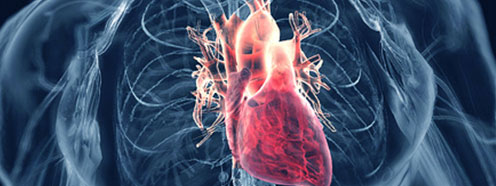
| > Lab Requisition.pdf |
| > Informed Consent for Genetic Testing.pdf |
| > Advance Beneficiary Notice of Noncoverage.pdf |
| > Private Insurance Noncoverage Acknowledgement.pdf |
| Testing | PKP2, DSP, DSG2, DSC2, JUP and TMEM43 genes |
| Methodology | DNA sequencing by capillary electrophoresis |
| Indications for Molecular Testing | Mutation-specific genetic testing is recommended for family members and appropriate relatives following the identification of the AC- causative mutation in an index case Comprehensive or targeted (DSC2, DSG2, DSP, JUP, PKP2 and TMEM43) ARVC genetic testing can be useful for patients satisfying task force diagnostic criteria for ARVC. Genetic testing may be considered for patients with possible AC (1 major or 2 minor criteria) Genetic testing is not recommended for patients with only a single minor criterion |
| Clinical Utility | Confirm diagnosis Identify disease-causing mutation in affected individual Early diagnosis Phenotype prediction Arrhythmia risk stratification Timely therapeutic interventions with β-blockers and/or ICD to prevent sudden death |
| Clinical Sensitivity | 30% – 40% |
| Analytic Sensitivity | Substitutions: 100% Small InDels: ~95% |
| Turnaround Time | 6-8 weeks |
| CPT Codes | PKP2 – 81406 DSG2 – 81406 DSP – 81406 DSC2 – 81406 JUP – 81406 TMEM43 – 81406 |
| Specimen | Whole blood drawn in lavender top (EDTA) tube in a volume of 3-5cc (Adults/Children) and 3 cc (infant <2 yrs). |
| Shipping | Refrigerate sample until time of shipping. Ship sample at room temperature in an insulated container by overnight delivery. |
| Causes for Rejection | Frozen specimen; hemolysis; quantity not sufficient for analysis; improper container. |
| >> Click here for more information | |
